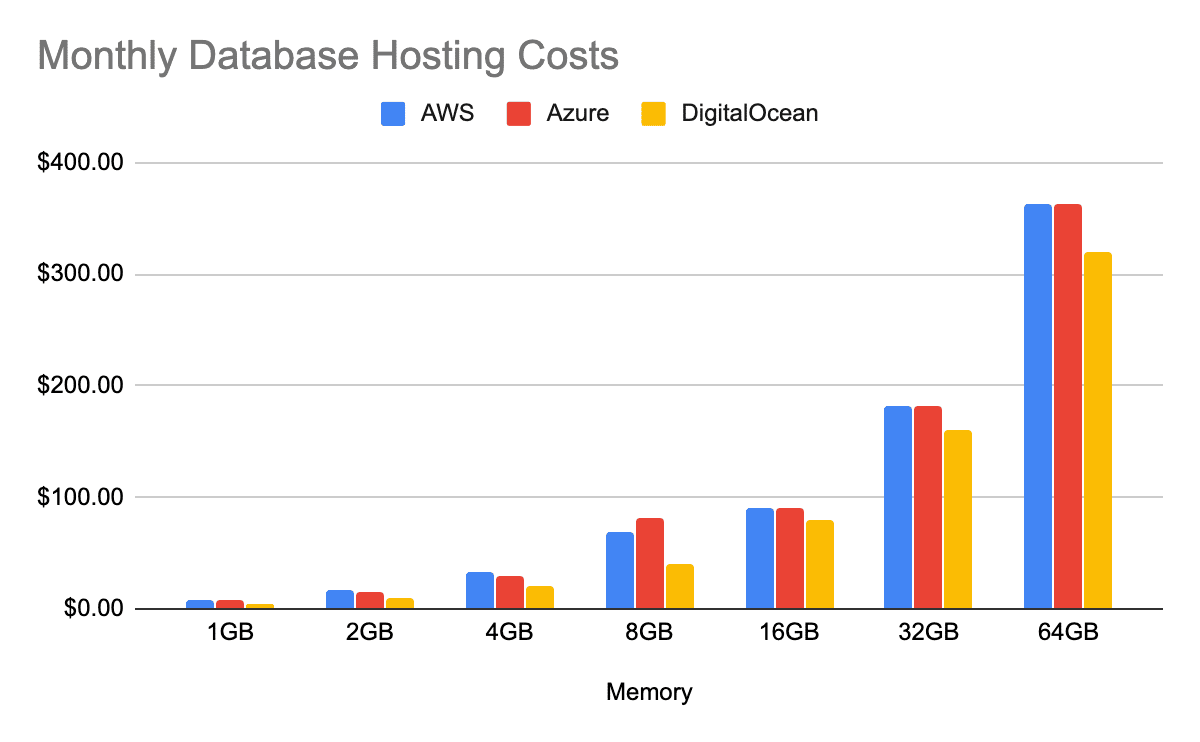

Look, I've been through enough database migrations and surprise AWS bills to know one thing: enterprise database pricing is where cloud providers make their real money. That $500/month estimate becomes $15K/month faster than you can say "multi-AZ deployment."
The problem isn't just that database hosting is expensive – it's that every provider has carefully designed their pricing to be impossible to predict. They've turned database budgeting into a high-stakes guessing game where you're always the loser.
The Real Shit That Doubles Your Database Bill
Multi-AZ is a 100% Tax on Staying Employed: AWS Multi-AZ literally doubles your compute costs for the privilege of not getting fired when a single zone dies. I've seen too many engineers learn this the hard way – your $2K/month RDS instance becomes $4K the moment you check that "high availability" box. But here's the thing: you WILL check that box after your first production outage at 2 AM, because explaining to your CEO why the database was down for 3 hours costs more than the extra $24K/year. Multi-AZ failover can get stuck during high write loads - seen this happen when the primary gets hammered and the failover just sits there waiting.
Oracle Sales Will Hunt You Forever: Oracle's licensing maze is designed by people who hate engineers. Their "Bring Your Own License" sounds great until you realize your existing licenses don't cover cloud deployments and you need to hire a lawyer to understand the audit implications. I watched one company get hit with a $400K Oracle audit after thinking they were saving money with BYOL. Oracle sales won't leave you alone - they'll call constantly after you so much as visit their website.
"Enterprise Support" Means "Pay Us to Answer the Phone": AWS Business Support starts at $100/month or 10% of usage (whichever is higher), and their first response to everything is "have you tried turning it off and on again?" I paid for Enterprise Support ($15K/year minimum) after spending three nights straight troubleshooting RDS connection issues that turned out to be their DNS resolver shitting itself. Sometimes it's worth it when you're debugging at 3am and need someone who knows what a read replica is. Azure Professional Direct is around a grand monthly and honestly, their support quality depends on whether you get the good engineer or the one who just reads Stack Overflow answers back to you.
2025's Fresh Ways to Burn Money
The providers keep finding new ways to separate you from your budget. AWS Aurora Serverless v2 scales to handle any load but never tells you the bill until it's too late. Got hit with some massive bill - I think it was like 7 or 8 grand for just a few hours when Aurora scaled during our load test and decided our traffic spike needed enterprise-grade resources.
MongoDB Atlas has this adorable habit of making M30 instances look cheap until you hit any real scale, then suddenly you need M100+ clusters that cost more than my first car. Their "auto-scaling" feature is basically Russian roulette with your credit card.
The Microsoft Tax is Real: Azure SQL Database costs 3x more than running PostgreSQL on Azure VMs, but try explaining to your Windows-loving CTO why we should migrate 500 stored procedures to save money. Azure Hybrid Benefit works great if you already sold your soul to Microsoft licensing, otherwise it's just expensive SQL Server in someone else's data center.
Google Cloud's Commitment Issues: GCP committed use discounts offer the best raw compute pricing, but they have this annoying habit of discontinuing services you depend on. Planning a 3-year database commitment with Google feels like dating someone with commitment issues – the prices are great until they ghost you. Cloud SQL connection pooling can fuck up during maintenance windows, leaving you with connection slot errors until you restart the instance.
What Actually Matters for Your Budget
After burning through enough database budgets to buy a house, here's what actually moves the needle:
- Reserved Instances save your ass IF you can predict the future (spoiler: you can't)
- Cross-region replication costs way more than expected – something like 90 bucks per TB monthly just to move bits around
- Backup storage seems cheap until you have tons of daily backups eating hundreds monthly
- IOPS provisioning on AWS can double your storage costs faster than you can say "low latency"
- Volume discounts only matter if your procurement team knows how to negotiate with Oracle's sharks
The dirty secret nobody tells you: PostgreSQL on AWS RDS costs 5x more than running Postgres on EC2, but try explaining database administration to your startup CEO when you're the only person who knows SQL.
Want to see the real numbers? Check out AWS's RDS pricing calculator versus EC2 pricing – the difference will make you cry. DigitalOcean's managed databases cost 60% less than AWS but good luck explaining to enterprise security why we're not using a "tier-1" provider. PlanetScale offers MySQL-compatible pricing that won't require selling a kidney, and Supabase gives you PostgreSQL hosting that doesn't hate your budget. For NoSQL masochists, MongoDB Atlas at least shows you the pain upfront compared to DynamoDB's billing maze.

